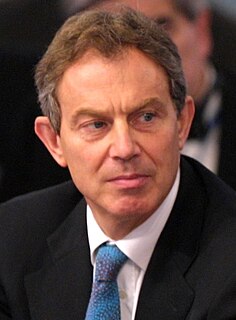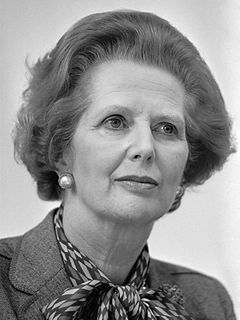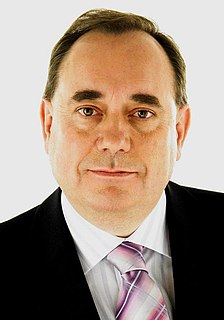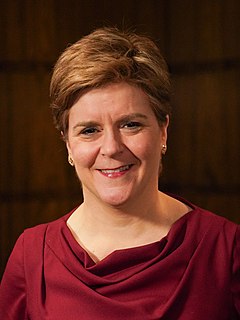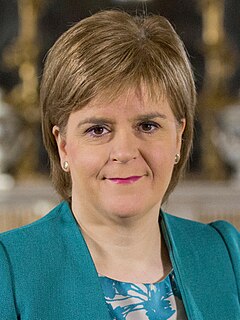Polling data
Graphical summary
The constituency vote is shown as semi-transparent lines, while the regional vote is shown in full lines.

Constituency Vote (FPTP)
2016
| Date(s) conducted | Polling organisation/client | Sample size | SNP | Lab | Con | Lib Dem | Others | Lead | |||
|---|---|---|---|---|---|---|---|---|---|---|---|
| 5 May | 2016 Scottish Parliament election | 2,279,153 | 46.5% | 22.6% | 22.0% | 7.8% | 1.1% | 23.9% | |||
| 2–4 May | YouGov/The Times | 1,445 | 48% | 22% | 19% | 7% | 4% | 26% | |||
| 1–2 May | Survation/Daily Record | 1,024 | 49% | 21% | 19% | 7% | 5% | 28% | |||
| 1 May | BBC Scotland debate between Davidson, Dugdale, Harvie, Rennie and Sturgeon. | ||||||||||
| 23–28 Apr | Panelbase/Sunday Times | 1,074 | 49% | 23% | 17% | 6% | 4% | 26% | |||
| 18–25 Apr | Ipsos MORI/STV [ permanent dead link ] | 1,015 | 51% | 19% | 18% | 6% | 6% | 32% | |||
| 1–24 Apr | TNS Archived 1 October 2017 at the Wayback Machine | 1,035 | 52% | 22% | 17% | 7% | 3% | 30% | |||
| 15–20 Apr | Survation/Daily Record | 1,005 | 53% | 18% | 17% | 7% | 5% | 35% | |||
| 11–15 Apr | BMG Research/Herald | 1,012 | 53% | 21% | 16% | 6% | 3% | 32% | |||
| 6–15 Apr | Panelbase/Sunday Times | 1,021 | 51% | 19% | 18% | 5% | 7% | 32% | |||
| 7–11 Apr | YouGov/The Times | 1,012 | 50% | 21% | 18% | 5% | 6% | 29% | |||
| 23 Mar–3 Apr | Survation/Unison Scotland | 1,003 | 52% | 21% | 16% | 6% | 4% | 31% | |||
| 29 Mar | STV debate between Davidson, Dugdale, Harvie, Rennie and Sturgeon. | ||||||||||
| 24 Mar | BBC Scotland debate between Coburn, Davidson, Dugdale, Harvie, Rennie and Sturgeon. | ||||||||||
| 2–22 Mar | TNS | 1,013 | 56% | 19% | 15% | 6% | 3% | 37% | |||
| 10–17 Mar | Survation/Daily Record | 1,051 | 54% | 20% | 16% | 7% | 4% | 34% | |||
| 7–9 Mar | YouGov/The Times | 1,070 | 49% | 19% | 19% | 6% | 7% | 30% | |||
| 25–29 Feb | Survation/Daily Mail | 1,022 | 54% | 21% | 16% | 5% | 4% | 33% | |||
| 3–24 Feb | TNS Archived 7 July 2017 at the Wayback Machine | 1,036 | 60% | 21% | 13% | 4% | 2% | 39% | |||
| 11–16 Feb | Survation/Daily Record | 1,006 | 53% | 22% | 16% | 6% | 3% | 31% | |||
| 1–7 Feb | Ipsos MORI/STV | 1,000 | 53% | 20% | 16% | 6% | 5% | 33% | |||
| 1–4 Feb | YouGov/The Times | 1,022 | 50% | 19% | 20% | 6% | 5% | 30% | |||
| 6–25 Jan | TNS | 1,016 | 57% | 21% | 17% | 3% | 2% | 36% | |||
| 8–14 Jan | Panelbase/Sunday Times | 1,053 | 50% | 21% | 17% | 6% | 5% | 29% | |||
| 8–12 Jan | Survation/Daily Record | 1,029 | 52% | 21% | 16% | 7% | 4% | 31% | |||
2015
| Date(s) conducted | Polling organisation/client | Sample size | SNP | Lab | Con | Lib Dem | Others | Lead | ||
|---|---|---|---|---|---|---|---|---|---|---|
| 16 Nov–14 Dec | TNS | 1,035 | 58% | 21% | 12% | 4% | 5% | 37% | ||
| 9–16 Nov | Ipsos MORI/STV | 1,029 | 50% | 20% | 18% | 7% | 5% | 30% | ||
| 16 Oct–4 Nov | TNS | 1,034 | 58% | 24% | 12% | 4% | 2% | 34% | ||
| 9–13 Oct | YouGov/The Times | 1,026 | 51% | 21% | 19% | 5% | 5% | 30% | ||
| 9–30 Sep | TNS | 1,037 | 56% | 21% | 12% | 6% | 5% | 35% | ||
| 12 Sep | Jeremy Corbyn becomes leader of the Labour Party | |||||||||
| 7–10 Sep | Survation/The Scottish Daily Mail | 1,010 | 53% | 22% | 14% | 6% | 5% | 31% | ||
| 7–10 Sep | YouGov/The Times | 1,110 | 51% | 22% | 18% | 4% | 5% | 29% | ||
| 12 Aug–1 Sep | TNS | 1,023 | 58% | 23% | 12% | 5% | 2% | 35% | ||
| 24–30 Aug | Ipsos MORI/STV | 1,002 | 55% | 20% | 12% | 7% | 6% | 35% | ||
| 15 Aug | Kezia Dugdale becomes leader of Scottish Labour | |||||||||
| 10 July–3 Aug | TNS | 1,029 | 62% | 20% | 12% | 3% | 2% | 42% | ||
| 19 June–8 July | TNS | 1,056 | 60% | 20% | 14% | 5% | 2% | 40% | ||
| 3–7 July | Survation/Scottish Daily Mail | 1,084 | 56% | 20% | 14% | 7% | 4% | 36% | ||
| 13–30 May | TNS | 1,031 | 60% | 19% | 15% | 3% | 3% | 41% | ||
| 16 May | Jim Murphy resigns as leader of Scottish Labour | |||||||||
| 7 May | 2015 United Kingdom general election | |||||||||
| 29 Apr–1 May | YouGov/The Times | 1,162 | 49% | 25% | 15% | 7% | 4% | 24% | ||
| 22–27 Apr | Survation/Daily Record | 1,015 | 54% | 24% | 13% | 5% | 4% | 30% | ||
| 16–20 Apr | YouGov/The Times | 1,111 | 51% | 25% | 14% | 6% | 4% | 26% | ||
| 8–9 Apr | YouGov/The Times | 1,056 | 49% | 24% | 16% | 5% | 5% | 25% | ||
| 13–19 Mar | ICM/Guardian | 1,002 | 46% | 26% | 13% | 5% | 9% | 20% | ||
| 12–17 Mar | Survation/Daily Record | 1,027 | 50% | 26% | 13% | 5% | 6% | 24% | ||
| 10–12 Mar | YouGov/The Times | 1,049 | 46% | 27% | 14% | 4% | 5% | 19% | ||
| 12–17 Feb | Survation/Daily Record | 1,011 | 48% | 28% | 13% | 5% | 7% | 20% | ||
| 29 Jan–2 Feb | YouGov/The Times | 1,001 | 51% | 26% | 12% | 4% | 7% | 25% | ||
| 14 Jan–2 Feb | TNS [ permanent dead link ] | 1,006 | 47% | 31% | 13% | 4% | 5% | 16% | ||
| 12–19 Jan | Ipsos MORI/STV | 1,001 | 53% | 24% | 11% | 5% | 7% | 29% | ||
2014
| Date(s) conducted | Polling organisation/client | Sample size | SNP | Lab | Con | Lib Dem | Others | Lead | ||
|---|---|---|---|---|---|---|---|---|---|---|
| 16-18 Dec | ICM/Guardian | 1,004 | 44% | 26% | 12% | 6% | 11% | 18% | ||
| 15-18 Dec | Survation/Daily Record | 1,000 | 51% | 25% | 15% | 5% | 5% | 26% | ||
| 13 Dec | Jim Murphy becomes leader of Scottish Labour | |||||||||
| 9-11 Dec | YouGov/The Sun | 1,081 | 50% | 28% | 14% | 3% | 5% | 22% | ||
| 27 Nov | Release of Smith Commission Report | |||||||||
| 20 Nov | Nicola Sturgeon becomes First Minister of Scotland | |||||||||
| 16 Nov | Nicola Sturgeon becomes leader of the SNP | |||||||||
| 6-13 Nov | Survation/Daily Record | 1,001 | 50% | 23% | 14% | 7% | 6% | 27% | ||
| 27 - 30 Oct | YouGov/Times | 1,078 | 46% | 28% | 12% | 5% | 9% | 18% | ||
| 22 - 29 Oct | Ipsos MORI | 1,026 | 57% | 23% | 8% | 6% | 5% | 34% | ||
| 24 Oct | Johann Lamont resigns as leader of the Scottish Labour Party, triggering a leadership election | |||||||||
| 12 Sep - 1 Oct | Panelbase/Scottish National Party | 1,049 | 42% | 27% | 15% | 5% | 10% | 15% | ||
| 19 Sep | Survation/Daily Mail | 871 | 49% | 31% | 13% | 3% | 1% | 18% | ||
| 19 Sep | First Minister Alex Salmond announces his resignation, triggering a leadership election | |||||||||
| 18 Sep | Scottish independence referendum | |||||||||
| 15 Sep - 17 Sep | YouGov/The Sun | 3,237 | 40% | 32% | 15% | 4% | 9% | 8% | ||
| 12 Sep - 16 Sep | Survation/Daily Mail | 1,000 | 42% | 31% | 15% | 6% | 6% | 11% | ||
| 9 Sep - 11 Sep | YouGov/The Times/The Sun | 1,268 | 39% | 35% | 15% | 4% | 8% | 4% | ||
| 5 Sep - 9 Sep | Survation/Daily Record | 1,000 | 43% | 33% | 14% | 4% | 5% | 10% | ||
| 2 - 5 Sep | YouGov/Sunday Times | 1,084 | 40% | 33% | 16% | 4% | 8% | 7% | ||
| 28 Aug - 1 Sep | YouGov/The Times/The Sun | 1,063 | 39% | 34% | 15% | 5% | 7% | 5% | ||
| 12 - 15 Aug | YouGov/The Times | 1,085 | 37% | 37% | 15% | 4% | 7% | Tied | ||
| 4 - 7 Aug | YouGov/The Sun | 1,142 | 36% | 37% | 16% | 4% | 7% | 1% | ||
| 28 Jul - 3 Aug | Ipsos MORI/STV | 1,006 | 36% | 34% | 16% | 6% | 8% | 2% | ||
| 4 - 8 Jul | Survation/Daily Record | 1,013 | 44% | 31% | 13% | 5% | 7% | 13% | ||
| 25 - 29 Jun | YouGov/The Times | 1,206 | 35% | 37% | 15% | 6% | 8% | 2% | ||
| 12 - 16 Jun | YouGov/The Sun | 1,039 | 35% | 37% | 14% | 5% | 9% | 2% | ||
| 8 - 10 Jun | Survation/Daily Record | 1,004 | 46% | 28% | 13% | 6% | 6% | 18% | ||
| 16 May - 1 Jun | Ipsos MORI/STV | 1,003 | 39% | 30% | 14% | 5% | 12% | 9% | ||
| 22 May | 2014 European Parliament election | |||||||||
| 9–12 May | Survation/Daily Record | 1,003 | 44% | 32% | 15% | 5% | 4% | 12% | ||
| 11 - 15 Apr | Survation/Sunday Post | 1,002 | 46% | 32% | 13% | 6% | 4% | 14% | ||
| 4 - 7 Apr | Survation/Daily Record | 1,001 | 45% | 32% | 14% | 6% | 4% | 13% | ||
| 20 - 24 Mar | YouGov/The Times | 1,002 | 38% | 35% | 13% | 7% | 7% | 3% | ||
| 6 - 7 Mar | Survation/Daily Record/Better Nation | 1,002 | 45% | 34% | 13% | 5% | 4% | 11% | ||
| 24 - 28 Feb | YouGov | 1,257 | 39% | 37% | 14% | 5% | 5% | 2% | ||
| 17 - 18 Feb | Survation/Daily Mail | 1,005 | 44% | 31% | 13% | 6% | 6% | 13% | ||
| 29 Jan - 6 Feb | Panelbase/Sunday Times | 1,012 | 43% | 32% | 14% | 6% | 6% | 11% | ||
| 29-31 Jan | Survation/Mail on Sunday | 1,010 | 38% | 36% | 12% | 9% | 5% | 2% | ||
| 21-27 Jan | YouGov | 1,192 | 34% | 38% | 15% | 5% | 7% | 4% | ||
| 23 Jan | 2014 Cowdenbeath by-election | |||||||||
2013
| Date(s) conducted | Polling organisation/client | Sample size | SNP | Lab | Con | Lib Dem | Others | Lead |
|---|---|---|---|---|---|---|---|---|
| 13-20 Dec | Panelbase/Scottish National Party | 1,012 | 40% | 32% | 15% | 5% | 8% | 8% |
| 29 Nov - 5 Dec | Ipsos MORI/STV News | 1,006 | 36% | 34% | 15% | 7% | 7% | 2% |
| 24 October | 2013 Dunfermline by-election | |||||||
| 9-15 Sep | Ipsos MORI | 1,000 | 41% | 37% | 13% | 7% | 2% | 4% |
| 30 Aug - 5 Sep | Panelbase/Sunday Times | 1,002 | 45% | 32% | 12% | 5% | 6% | 13% |
| 17-24 Jul | Panelbase/Sunday Times | 1,001 | 48% | 30% | 13% | 4% | 5% | 18% |
| 20 June | 2013 Aberdeen Donside by-election | |||||||
| 29 Apr - 5 May | Ipsos MORI/The Times | 1,001 | 39% | 36% | 16% | 8% | 1% | 2% |
| 4-9 Feb | Ipsos MORI/The Times | 1,003 | 43% | 35% | 13% | 7% | 2% | 8% |
2012
| Date(s) conducted | Polling organisation/client | Sample size | SNP | Lab | Con | Lib Dem | Others | Lead |
|---|---|---|---|---|---|---|---|---|
| 8-15 Oct | Ipsos MORI/The Times | 1,003 | 40% | 35% | 13% | 8% | 4% | 5% |
| 7-13 Jun | Ipsos MORI | 1,003 | 45% | 32% | 12% | 6% | 5% | 13% |
| 3 May | 2012 Scottish local elections | |||||||
| 27 - 29 Jan | Ipsos MORI | 1,005 | 49% | 23% | 13% | 10% | 5% | 26% |
| 26 Jan - 1 Feb | Panelbase/Sunday Times | 1,008 | 43% | 25% | 12% | 4% | 3% | 18% |
2011
| Date(s) conducted | Polling organisation/client | Sample size | SNP | Lab | Con | Lib Dem | Others | Lead |
|---|---|---|---|---|---|---|---|---|
| 5 May | 2011 Scottish Parliament election | 1,989,222 | 45.4% | 31.7% | 13.9% | 7.9% | 1.1% | 13.7% |
Regional Vote (AMS)
Graphical summary
2016
| Date(s) conducted | Polling organisation/client | Sample size | SNP | Lab | Con | Green | Lib Dem | UKIP | RISE [2] | Others | Lead |
|---|---|---|---|---|---|---|---|---|---|---|---|
| 5 May | 2016 Scottish Parliament election | 2,285,752 | 41.7% | 19.1% | 22.9% | 6.6% | 5.2% | 2.0% | 0.5% | 2.0% | 18.8% |
| 2–4 May | YouGov/The Times | 1,445 | 41% | 19% | 20% | 9% | 6% | 4% | 1% | 1% | 21% |
| 1–2 May | Survation/Daily Record | 1,024 | 44% | 19% | 20% | 7% | 6% | 2% | — | 2% | 24% |
| 1 May | BBC Scotland debate between Davidson, Dugdale, Harvie, Rennie and Sturgeon. | ||||||||||
| 23–28 Apr | Panelbase/Sunday Times | 1,074 | 44% | 22% | 19% | 6% | 4% | 3% | 2% | <1% | 22% |
| 18–25 Apr | Ipsos MORI/STV [ permanent dead link ] | 1,015 | 45% | 17% | 19% | 10% | 7% | 1% | <1% | <1% | 26% |
| 1–24 Apr | TNS Archived 1 October 2017 at the Wayback Machine | 1,035 | 45% | 22% | 18% | 8% | 5% | <1% | 1% | <1% | 23% |
| 15–20 Apr | Survation/Daily Record | 1,005 | 43% | 17% | 18% | 11% | 7% | 4% | — | 2% | 25% |
| 11–15 Apr | BMG Research/Herald | 1,012 | 46% | 20% | 16% | 7% | 6% | 4% | — | 0% | 26% |
| 6–15 Apr | Panelbase/Sunday Times | 1,021 | 47% | 18% | 19% | 8% | 4% | 3% | 1% | <1% | 28% |
| 7–11 Apr | YouGov/The Times | 1,012 | 45% | 19% | 18% | 8% | 5% | 3% | 1% | 1% | 26% |
| 23 Mar–3 Apr | Survation/Unison Scotland | 1,003 | 44% | 19% | 16% | 10% | 7% | 4% | — | 1% | 25% |
| 29 Mar | STV debate between Davidson, Dugdale, Harvie, Rennie and Sturgeon. | ||||||||||
| 24 Mar | BBC Scotland debate between Coburn, Davidson, Dugdale, Harvie, Rennie and Sturgeon. | ||||||||||
| 2–22 Mar | TNS | 1,013 | 47% | 21% | 15% | 8% | 6% | 1% | 2% | – | 26% |
| 10–17 Mar | Survation/Daily Record | 1,051 | 42% | 18% | 18% | 10% | 6% | 5% | — | 1% | 24% |
| 7–9 Mar | YouGov/The Times | 1,070 | 43% | 17% | 19% | 8% | 5% | 4% | 1% | 1% | 24% |
| 25–29 Feb | Survation/Daily Mail | 1,022 | 43% | 19% | 14% | 9% | 7% | 6% | – | 1% | 24% |
| 3–24 Feb | TNS Archived 7 July 2017 at the Wayback Machine | 1,036 | 55% | 21% | 13% | 6% | 4% | – | – | – | 34% |
| 11–16 Feb | Survation/Daily Record | 1,006 | 45% | 18% | 15% | 9% | 6% | 6% | – | 1% | 27% |
| 1–7 Feb | Ipsos MORI/STV | 1,000 | 49% | 19% | 15% | 6% | 8% | 1% | <1% | 2% | 30% |
| 1–4 Feb | YouGov/The Times | 1,022 | 42% | 20% | 20% | 6% | 5% | 3% | 2% | 1% | 22% |
| 6–25 Jan | TNS | 1,016 | 52% | 19% | 17% | 6% | 6% | <1% | <1% | 1% | 33% |
| 8–14 Jan | Panelbase/Sunday Times | 1,053 | 48% | 19% | 17% | 5% | 7% | 2% | 1% | 1% | 29% |
| 8–12 Jan | Survation/Daily Record | 1,029 | 42% | 20% | 16% | 9% | 8% | 5% | – | <1% | 22% |
2015
| Date(s) conducted | Polling organisation/client | Sample size | SNP | Lab | Con | Green | Lib Dem | UKIP | SSP / RISE [2] | Others | Lead | |
|---|---|---|---|---|---|---|---|---|---|---|---|---|
| 16 Nov-14 Dec | TNS | 1,035 | 54% | 20% | 12% | 9% | 4% | 1% | <0.5% | 0% | 34% | |
| 9-16 Nov | Ipsos MORI/STV | 1,029 | 46% | 19% | 16% | 7% | 8% | 1% | <0.5% | 1% | 27% | |
| 16 Oct–4 Nov | TNS | 1,034 | 52% | 25% | 11% | 5% | 5% | 2% | <0.5% | 1% | 27% | |
| 9–13 Oct | YouGov/The Times | 1,110 | 45% | 20% | 19% | 6% | 5% | 3% | 3% | 0% | 25% | |
| 9–30 Sep | TNS | 1,037 | 52% | 23% | 11% | 5% | 6% | 3% | 0.5% | 1% | 29% | |
| 12 Sep | Jeremy Corbyn becomes leader of the Labour Party | |||||||||||
| 7–10 Sep | Survation/The Scottish Daily Mail | 1,010 | 42% | 21% | 13% | 11% | 6% | 5% | 0% | 1% | 21% | |
| 7–10 Sep | YouGov/The Times | 1,110 | 45% | 20% | 18% | 6% | 4% | 3% | 3% | 1% | 25% | |
| 12 Aug–1 Sep | TNS | 1,023 | 51% | 24% | 11% | 6% | 6% | 1% | <0.5% | 1% | 27% | |
| 24-30 Aug | Ipsos MORI/STV | 1,002 | 50% | 20% | 12% | 8% | 7% | <0.5% | — | 2% | 30% | |
| 15 Aug | Kezia Dugdale becomes leader of Scottish Labour | |||||||||||
| 10 Jul-3 Aug | TNS | 1,029 | 54% | 20% | 12% | 8% | 4% | 1% | 1% | 0% | 34% | |
| 19 Jun-8 Jul | TNS | 1,056 | 51% | 21% | 13% | 7% | 5% | 1% | 1% | 0% | 30% | |
| 3-7 Jul | Survation/Daily Mail | 1,031 | 45% | 19% | 12% | 11% | 8% | 5% | — | 0% | 26% | |
| 13–30 May | TNS | 1,031 | 50% | 19% | 14% | 10% | 5% | 2% | — | 0% | 31% | |
| 16 May | Jim Murphy resigns as leader of Scottish Labour | |||||||||||
| 7 May | 2015 United Kingdom general election | |||||||||||
| 29 Apr-1 May | YouGov/The Times | 1,162 | 43% | 24% | 16% | 7% | 6% | 2% | 3% | 0% | 19% | |
| 22-27 Apr | Survation/Daily Record | 1,015 | 44% | 21% | 11% | 10% | 6% | 5% | — | 1% | 23% | |
| 16-20 Apr | YouGov/The Times | 1,111 | 42% | 25% | 15% | 7% | 6% | 2% | 2% | 0% | 17% | |
| 8-9 Apr | YouGov/The Times | 1,056 | 42% | 24% | 16% | 6% | 5% | 2% | 3% | 1% | 18% | |
| 13-19 Mar | Survation/Daily Record | 1,002 | 42% | 26% | 14% | 5% | 6% | 6% | — | 1% | 16% | |
| 12-17 Mar | Survation/Daily Record | 1,027 | 39% | 23% | 15% | 11% | 5% | 6% | — | 2% | 16% | |
| 10-12 Mar | YouGov/The Times | 1,001 | 43% | 25% | 15% | 8% | 5% | 2% | 2% | 0% | 18% | |
| 12-17 Feb | Survation/Daily Record | 1,011 | 39% | 22% | 12% | 13% | 7% | 7% | <0.5% | 1% | 17% | |
| 29 Jan-2 Feb | YouGov/The Times | 1,001 | 44% | 24% | 12% | 8% | 4% | 3% | 3% | 1% | 20% | |
| 14 Jan-2 Feb | TNS BMRB [ permanent dead link ] | 1,006 | 44% | 26% | 13% | 9% | 6% | 0% | 1% | 1% | 18% | |
| 12-19 Jan | Ipsos MORI/STV | 1,001 | 48% | 22% | 11% | 10% | 5% | 2% | 1% | 1% | 26% | |
2014
| Date(s) conducted | Polling organisation/client | Sample size | SNP | Lab | Con | Green | Lib Dem | UKIP | SSP | Others | Lead | |
|---|---|---|---|---|---|---|---|---|---|---|---|---|
| 15-18 Dec | Survation/Daily Record | 1,000 | 40% | 24% | 14% | 9% | 6% | 7% | 1% | 1% | 16% | |
| 13 Dec | Jim Murphy becomes leader of Scottish Labour | |||||||||||
| 9-11 Dec | YouGov/The Sun | 1,081 | 42% | 26% | 14% | 7% | 3% | 4% | 3% | 2% | 16% | |
| 27 Nov | Release of Smith Commission Report | |||||||||||
| 20 Nov | Nicola Sturgeon becomes First Minister of Scotland | |||||||||||
| 16 Nov | Nicola Sturgeon becomes leader of the SNP | |||||||||||
| 6-13 Nov | Survation/Daily Record | 1,001 | 41% | 20% | 13% | 10% | 6% | 8% | 1% | 1% | 21% | |
| 27 - 30 Oct | YouGov/Times | 1,078 | 38% | 26% | 12% | 10% | 4% | 6% | 3% | 1% | 12% | |
| 22 - 29 Oct | Ipsos MORI | 1,026 | 50% | 23% | 8% | 10% | 6% | 1% | 1% | 1% | 27% | |
| 24 Oct | Johann Lamont resigns as leader of the Scottish Labour Party, triggering a leadership election | |||||||||||
| 12 Sep - 1 Oct | Panelbase/Scottish National Party | 1,049 | 37% | 27% | 15% | 9% | 5% | 4% | 1% | 10% | ||
| 19 Sep | First Minister Alex Salmond announces his resignation, triggering a leadership election | |||||||||||
| 18 Sep | 2014 Scottish independence referendum | |||||||||||
| 15 Sep - 17 Sep | YouGov/The Sun | 3,237 | 35% | 30% | 15% | 9% | 3% | 5% | 3% | 1% | 5% | |
| 12 Sep - 16 Sep | Survation/Daily Mail | 1,000 | 37% | 26% | 13% | 9% | 7% | 7% | 0% | 1% | 11% | |
| 9 Sep - 11 Sep | YouGov/The Times/The Sun | 1,268 | 34% | 33% | 14% | 8% | 4% | 4% | 3% | 1% | 1% | |
| 5 Sep - 9 Sep | Survation/Daily Record | 1,000 | 38% | 27% | 15% | 9% | 5% | 6% | 0% | 1% | 11% | |
| 2 Sep - 5 Sep | YouGov/The Sunday Times | 1,084 | 34% | 31% | 15% | 8% | 4% | 4% | 3% | 1% | 3% | |
| 28 Aug - 1 Sep | YouGov/The Times/The Sun | 1,063 | 33% | 33% | 14% | 7% | 4% | 4% | 3% | 1% | Tied | |
| 12–15 August | YouGov/The Times | 1,085 | 32% | 34% | 14% | 6% | 4% | 5% | 4% | 2% | 2% | |
| 4–7 August | YouGov/The Sun | 1,142 | 31% | 35% | 15% | 8% | 5% | 4% | 3% | 1% | 4% | |
| 4–8 July | Survation/Daily Record | 1,013 | 37% | 26% | 13% | 8% | 7% | 8% | 0% | 1% | 11% | |
| 25–29 June | YouGov/The Times | 1,206 | 29% | 35% | 14% | 8% | 5% | 6% | 2% | 1% | 6% | |
| 12–16 June | YouGov/The Sun | 1,039 | 31% | 33% | 15% | 8% | 5% | 5% | 2% | 1% | 2% | |
| 8–10 June | Survation/Daily Record | 1,004 | 39% | 26% | 10% | 10% | 6% | 7% | 0% | 1% | 13% | |
| 22 June | 2014 European Parliament election | |||||||||||
| 9–12 May | Survation/Daily Record | 1,003 | 39% | 26% | 11% | 9% | 6% | 6% | 1% | 1% | 13% | |
| 11 - 15 Apr | Survation/Sunday Post | 1,001 | 38% | 28% | 11% | 8% | 7% | 6% | 1% | 1% | 10% | |
| 4 - 7 Apr | Survation/Daily Record | 1,002 | 41% | 25% | 12% | 7% | 9% | 4% | 2% | 16% | ||
| 20 - 24 Mar | YouGov/The Times | 1,072 | 33% | 33% | 13% | 7% | 7% | 3% | 4% | 1% | Tied | |
| 6 - 7 Mar | Survation/Daily Record/Better Nation | 1,002 | 40% | 28% | 11% | 8% | 7% | 5% | 1% | 0% | 12% | |
| 24 - 28 Feb | YouGov | 1,257 | 33% | 35% | 14% | 5% | 4% | 6% | 3% | 1% | 2% | |
| 17 - 18 Feb | Survation/Daily Mail | 1,005 | 41% | 29% | 13% | 3% | 8% | 3% | 1% | 2% | 12% | |
| 26 Jan - 6 Feb | Panelbase/Sunday Times | 1,012 | 44% | 27% | 13% | 6% | 5% | 3% | 1% | 17% | ||
| 21-27 Jan | YouGov | 1,192 | 34% | 33% | 14% | 7% | 6% | 0% | 3% | 3% | 1% | |
| 23 January | 2014 Cowdenbeath by-election | |||||||||||
2013
| Date(s) conducted | Polling organisation/client | Sample size | SNP | Lab | Con | Green | Lib Dem | Others | Lead | |
|---|---|---|---|---|---|---|---|---|---|---|
| 13 - 20 Dec | Panelbase/Scottish National Party | 1,012 | 40% | 31% | 14% | 5% | 5% | 5% | 9% | |
| 24 October | 2013 Dunfermline by-election | |||||||||
| 30 Aug - 5 Sep | Panelbase/Sunday Times | 1,002 | 46% | 28% | 12% | 6% | 4% | 4% | 18% | |
| 17 - 24 Jul | Panelbase/Sunday Times | 1,001 | 48% | 25% | 13% | 6% | 4% | 4% | 23% | |
| 20 June | 2013 Aberdeen Donside by-election | |||||||||
2012
| Date(s) conducted | Polling organisation/client | Sample size | SNP | Lab | Con | Green | Lib Dem | Others | Lead | |
|---|---|---|---|---|---|---|---|---|---|---|
| 9 - 19 Oct | Panelbase/Sunday Times | 972 | 40% | 27% | 11% | 5% | 4% | 3% | 13% | |
| 3 May | 2012 Scottish local elections | |||||||||
| 26 Jan - 1 Feb | Panelbase/Sunday Times | 1,008 | 41% | 25% | 11% | 4% | 3% | 1% | 16% | |
2011
| Date(s) conducted | Polling organisation/client | Sample size | SNP | Lab | Con | Lib Dem | Green | Others | Lead |
|---|---|---|---|---|---|---|---|---|---|
| 5 May | 2011 Scottish Parliament election | 1,991,051 | 44.0% | 26.3% | 12.4% | 5.2% | 4.4% | 7.7% | 17.7% |


